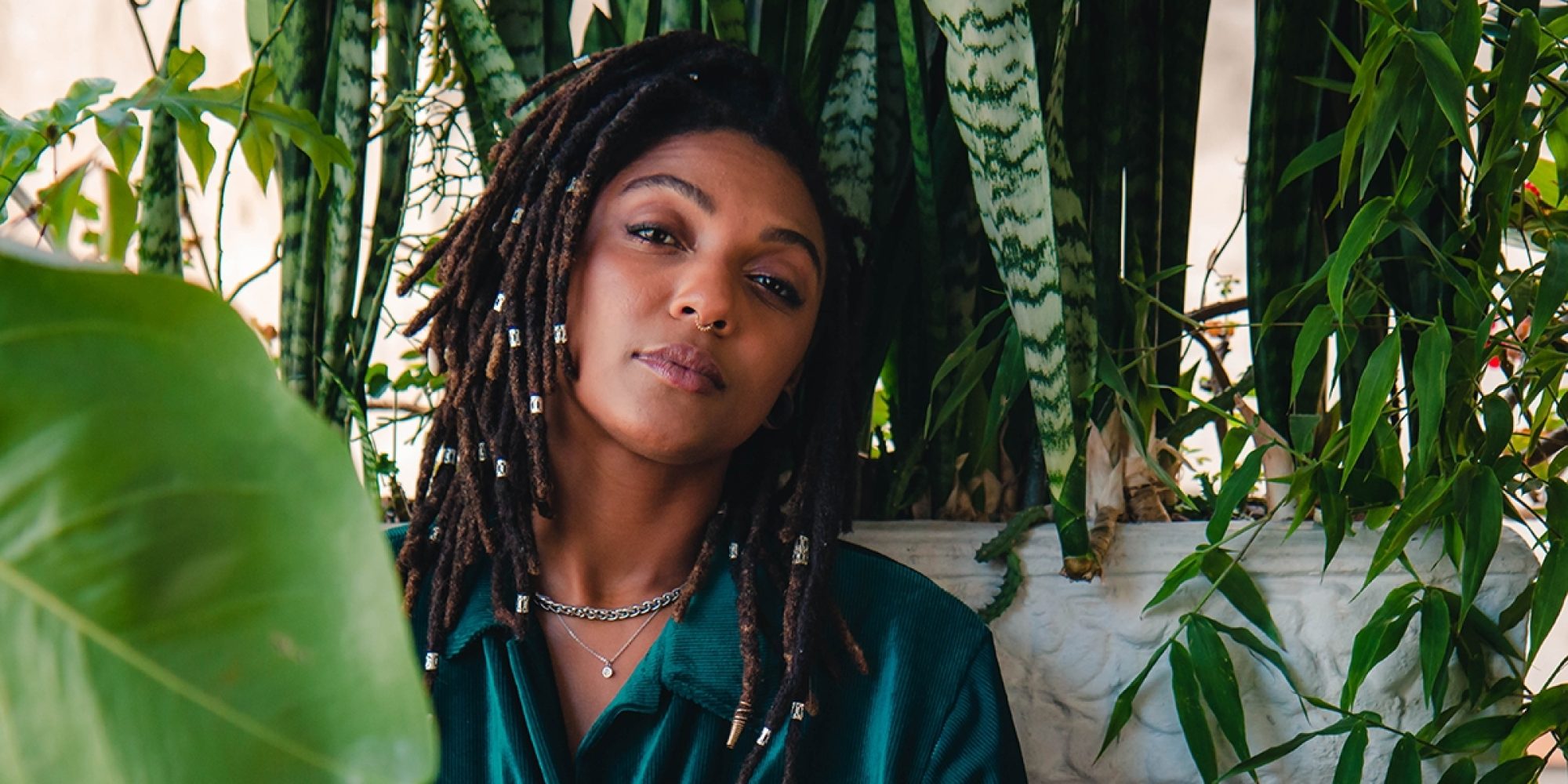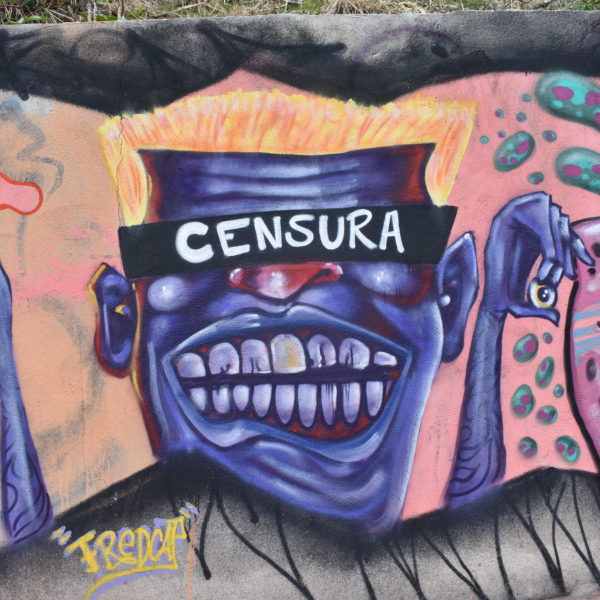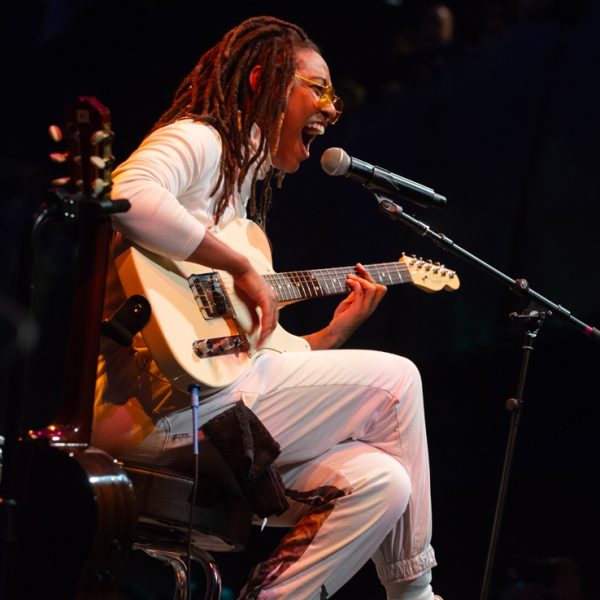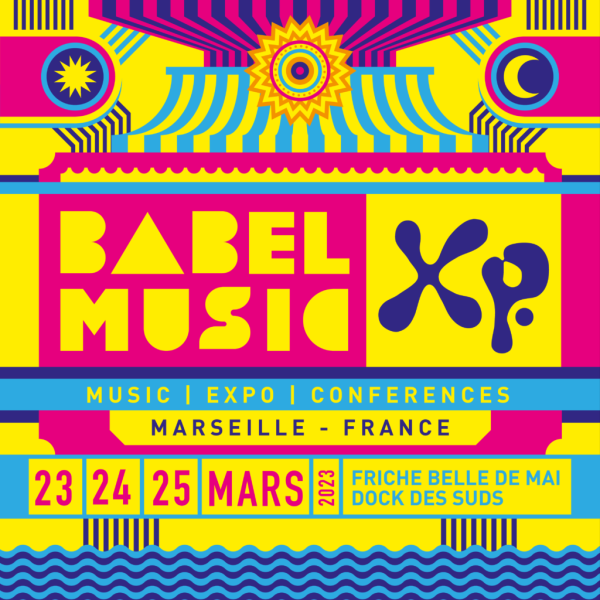Bia Ferreira comes from a rural town in the Minas Gerais region of Brazil, born into a family of evangelical missionaries. Her mother is a pianist and choir leader, and her father a pastor. She began studying piano at the age of three and continued her studies at the Brazilian Music Conservatory where she learned to play dozens of different instruments. And she would sing in the family church. At the age of 12, she says, she wrote her first song – a plea to god to “cure” her thoughts that she was a lesbian. That didn't happen. By the age of 15, she had gotten involved in the Black women's movement in Brazil. And then at university, her mind was expanded further. And at the same time, she discovered people would give her money for playing guitar. In her early 20's, she hitchhiked around the country, playing and selling her self-produced CD wherever she could. She then gained fame with the track "Cota Não é Esmola," in which she sang about the importance of the quota system for Black people's access to university. Her performance of the song on YouTube has had over 14 million views and the song's lyrics even became required reading for the University of Brasília's entrance exam. Ferriera's debut album, Igreja Lesbiteriana, O chamado (The Lesbian Church, The Call) in 2019 was an unflinching attack on racism, anti-feminism and homophobia.
Her frustration and anger at the status quo earned her both admirers and detractors. At one point, she said she “couldn't afford to talk about love” because of the intensity of her desire to fight for human rights. But now, in her early '30's, Ferriera's heart has warmed and spreading love has become her primary motivation, but not her only one. In 2022, she released a double CD album, Faminta (Hungry). She has explained the title is about being “hungry of love, hungry of life, hungry of art, and hungry of information.” The first disc is “an open letter of love and appreciation of Black women,” while the second disc is “informational” about the destruction of the Amazon and the people resisting it.
We were able to sit with Ferreira for a chat before her showcase at the Babel Music Expo recently in Marseille, France. The following was editing for both clarity and length.
Ron Deutsch: The first thing on my mind is your experiences when you were hitchhiking around Brazil. When I was young, I also hitchhiked around the U.S. and Canada, and it was a real growth experience for me. I met people from every walk of life, and these strangers would not just give me rides, but offered me meals, put me up in their homes. I learned so much about the world and how kind people were.
Bia Ferreira: Yeah, and you find a lot of people that think similar to you, that are making the same revolution that you did. So you know that you're not alone. Even if you're out of your country, you'll find people that fight the same fights that you have, so it's nice. I learned it traveling the world. Like, I will never stay alone. I always will have a new friend. I will always learn a new thing. So this is very rich for me, you know? I'm the first of my family to travel out of Brazil.
My youngest brother, he's 29 and he's arriving tomorrow in France for work. And I'm very happy because I opened this door of imagination. I think we can realize things that we can imagine. If you cannot imagine, you cannot realize. So to bring this to my family too makes me very happy.
You have called yourself an “artivist,” and so much of your agenda is talk about women's issues, LGBTQ issues, and of people of color. Given all the troubles in the world today, is it difficult to still believe that music can help make political and social change?
I think music is political and that's it. Music is a movement, an artistic movement to show what happens in your time. Mozart's music was political and you can know what was happening at that time because of the music. So this community that gathers around the music, maybe it is not the community that agrees with everything you're doing, but they are there because of the power of the music. And maybe they can begin to think, start to think like your thing, but it's not mandatory. Maybe people are there just because of the music even if they disagree with the message, but they are there because they are listening to good music and that's the way I make art. I make art because I think people who don't agree with me need to hear my songs. And even if they disagree with the lyrics, they will love the songs.
But yeah, I think they will receive little doses, you know, until they realize they agree with me, even before they realize it. They will be realizing step by step, like, "Yeah, this song is good. What she said about love, I agree. Yeah, I think, yeah.” And then they love me.
One of the things I've come to learn, specifically about Brazilian music, was that because of the years of the dictatorship, Brazilian artists learned to hide things in their songs, because they couldn't say these things directly. So I would suggest you are doing much the same thing, no?
I think in Brazil, we had bad, bad times a few years ago with [former President] Bolsonaro. So we needed to hide things again in the songs, because if you were very direct, you got in trouble. So I think Brazilian art has these skills. Our language is poetic in a way to say hard things. And I think more than this, Brazilian music has this “Afrodiasporic” rhythm in everything we do and in that you can see Africa. In everything we do, you can feel Latina Africa.
So it's like “Latinafrica.” Because we met indigenous people, we met Africa, we met people around the world that are there, and so we realize that Brazilian music is unique, and we have a unique way to communicate things without saying, you know? In our performance, in the rhythm, in the words you say – they are all very important. But even if you don't speak Portuguese, you can feel the power of what's happening. That's the precious thing about Brazilian music.
Have you been to visit or perform in Africa?
I was in Morocco last year, my first time in Africa. And this year I'm going to Guinea-Bissau, South Africa, and Morocco again, and maybe Mali, we don't know for sure. But this year is my first time touring in the first continent. So for me it's a big pleasure. It's like going back home, you know?
I have this big question I've wanted to ask you. I saw you three years ago at WOMEX, and you seem now much more at peace and not as angry in a certain way than when you started out, and also from reading interviews from you when you were younger. Do you see this change in yourself, and would you attribute this change to all the traveling you've done now around the world?
I think at that time I was very, very serious and very hard in my words, and realized maybe if I arrive with love, I can touch you better than if I arrive angry. So now I'm 31. In one month, I will turn 32. And I think when I was 20 or something, I was very, “Yeah, let's change the world by the angry, by the hate!” But I think now I'm looking to find people that love as I love. People who believe in this revolution with love, with affection. Because if I have more people fighting with me to have peace, to have love, the respect, equal rights, so we will walk ahead. If I just fight, fight, fight, fight without love, we will walk backwards, and that's not what we need.
I think I needed to find different ways to say the same thing. And it depends on the place where I am. I was in Morocco last year and I could not talk about women rights. You know, I cannot say, “I'm here because we need to give more power and rights for women.” I could not say this, but I said, “Only courageous men fight for the women's life.” So when I say this, I give them the choice to be courageous or a coward. So I'm not saying, “give freedom for women,” but I'm saying you can make it better for women if you are courageous.
And when I was in the United States, and it was election time last year, I was like, “Hey guys, I came from Brazil and I know Bolsonaro. I don't know Trump, but I know Bolsonaro.... And I think you will not like what will happen!” I don't say I hate Trump. I had another way to talk. I think in the United States we have a lot of people fighting, but the biggest part of the population don't have knowledge about geography or political issues around the world. They think America is America, and the world is over there. So I think in the United States they are missing this – to recognize the history and know the history behind what's happening. So we need to find different ways to communicate the same thing,
Here, in Europe, I think people are watching extremism coming back again and everybody is scared. So when I talk about politics, about women rights, LGBTQ rights here in Europe, I feel that people are more engaged in that fight because they are watching what's happening, and they don't want to see history repeat and repeat.
I think also I became able to communicate this revolution with more love, because I realized that not everybody that has the same information I have. So if I want people to join my revolution, I think I need to arrive with love, because maybe you don't know the same thing I know, or I don't know the same thing you know. Your life, it’s different than mine. So I needed to have a little bit more empathy. I think I learned it traveling the world – to hear about their histories, to study a little bit about politics in each place – before singing, you know? I changed my mind doing that; that's it. That's good. (laughing) And I'm changing every time.
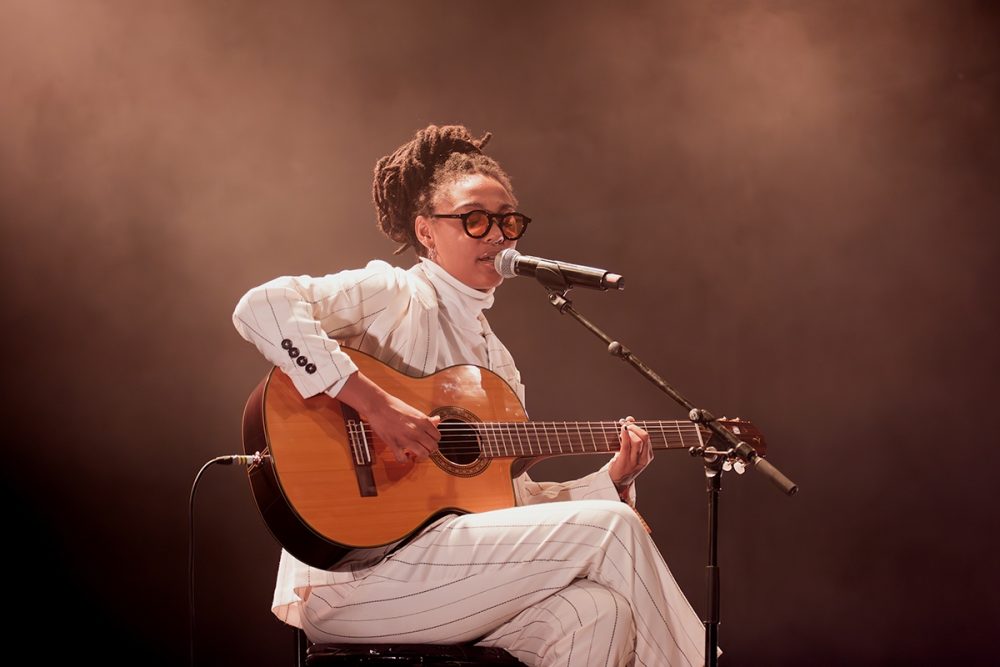
Okay. Let's talk about what are you recording now? Should we expect a new album soon?
Well, this year I am doing a solo tour. So I will drop a live acoustic album.... just guitar and voice and me. I think this is the re-connection with the beginning of the art when I started. I didn’t talk about this before, but I think that you need to know me and what can I do by myself alone with guitar. And then I have a reggae music album that I'm working on for the end of the year.
Can I ask... why a reggae album?
I always wanted to do a reggae music album, but I never felt ready to do this, you know? And now I think I'd like to realize this. I have a lot of reggae music songs written and I'd like to show them.
Why did you think you weren't ready?
I think reggae music is not only a kind of music to dance and sing. It's very spiritual. So reggae music is a spiritual commitment that you have to have. I think the reggae music singers, they are prophets. They are bringing a message of love and of revolution all the time. And you need to realize this spirituality. I cannot drink a lot of alcohol and make a reggae music album. It's not the way things work. Because if you're doing that, you don't respect the tradition where this kind of art came from. So now I think I feel ready and it's spiritually strong. So I'd like to invite a lot of people that I love and admire to sing in this album. I'm working a lot to make it happen.
You know so many genres become popular and then they fade, but reggae has had this steady life and popularity all over the world. Of course, there's the attraction to it because of marijuana. You can always tell when a reggaefest is happening by smell in the air, you know?
I think when we talk about being high in reggae music, it's not about the weed. And we need to talk about this because the weed is sacred. I think when people are listening, I don't know, like to yoga songs to make meditation, they are high too with that kind of song. So I think reggae music brings you high and you don't need the weed for this. It's a spiritual connection with the divine. So I think I found a big piece inside of me when I listen to reggae music, when I study the culture of reggae music, when I can see a lot of people in the '60s talking about things that I'm talking about right now. I feel like, “Yeah I'm a genius,” but then in the '60s it was the old men talking about this.
But yes, the political side is very important too, because I think reggae music is Black music. And whenever we see Black music, we find a lot of resistance. Yes, the reggae music is popular. Everybody likes it. I don't care if you're white, Black, brown, yellow, you like reggae music. It's in the beat. Because the love can touch you with it. And I like to touch people with love.








